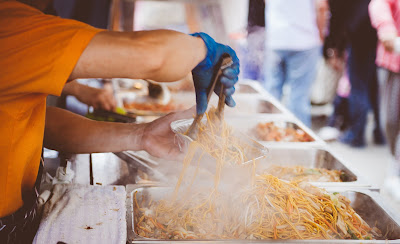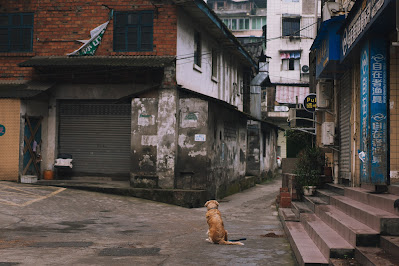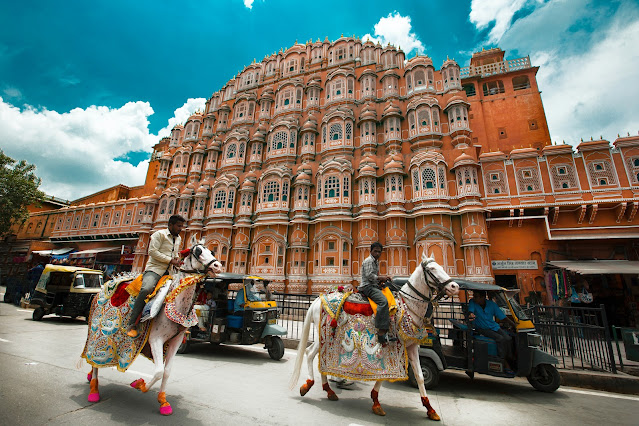
|
| Photo Credit: Jovyn Chamb at Unsplash |
If you are from outside India and planning to travel in India for the first
time then there is a high probability that you might have come across warnings
regarding diarrhea, travelling safety, street animals, frauds, etc. So, are
these warnings myths or truth? Below are few tips that will help you decide:
1. Food

|
| Photo Credit: Emy at Unsplash |
Indian foods are undoubtedly amongst the most delicious foods in the world.
Majority of these dishes are prepared using many spices that add the unique
flavours to these dishes. So, if you are not adapted to these spices,
especially red chilly powder, then there is a high probability that you might
suffer from stomach problems such as acidity and loose motion. Also, many
dishes in India contain milk products such as curd, butter, ghee, paneer, etc.
So, if you are intolerant to diary, you might again suffer from stomach
problems after consuming such food items. Therefore, before consuming any food
try to know the contents of it to avoid having inconveniences after
consumption.
But luckily India has a wide variety of food items on offer and therefore you
will find dishes that are tasty as well as suits your stomach.
2. Street Food

|
| Photo Credit: Clem Onojeghuo at Unsplash |
Similar to any other food items, street foods in India are delicious as
well. So, there is an idea that if the locals are consuming street food from a
particular place then it must be good. Technically that is a true hack that
everyone can follow while travelling. But the problem is since you are not a
local, the same food might not suit your body. Therefore, while consuming
street foods in India you should again follow the same rules that have been
stated above to avoid inconveniences.
If it is a hot food item (both solid or liquid) it is much safer to consume as
compared to items that are not as heat kills pathogens present in the food
items.
3. Water

|
| Photo Credit: Luann Hunt at Unsplash |
Unlike some countries in the world, most of the tap water in India cannot be
consumed for drinking directly without filtering. Therefore, to avoid having
health issues, never drink tap water directly unless it is mention as
‘Drinking Water’. Also, do not drink the water if you are unsure of the
source. Carry filtered water from hotel or restaurant in your own water
bottles or opt for packaged drinking water which are widely available in every
corner of the country.
4. Street Safety

|
| Photo Credit: Lee Soo Hyun at Unsplash |
Most of the Indian streets are safe and nobody is going to come up to
you with a gun or knife to rob you. You can easily travel anywhere without any
problem most of the time. But every place in the world has people with both
positive and negative intensions. Therefore, try not travel complete alone in
places with no sign of locals or residents of that place specially at
night.
If you are carrying bags, do not leave them unattended in public areas as
there might be some chances of getting stolen. If there is a huge crowd such
as in a public transport or market area, try to keep your bag in front of you
rather than on your back and keep the valuables inside it to avoid getting
pick-pocketed. Otherwise Indian people are highly friendly and approachable
and will provide you with help if required.
5. Street Animals

|
| Photo Credit: Lin Leyu at Unsplash |
There are lots of stray animals in India. You will come across cows,
goats, dogs, sometimes horses, donkeys, monkeys, etc. Majority of the time no
animals are going to attack you. Therefore, you do not have to worry about
getting rabies vaccines. But it is to be noted that in some places where there
are a lot of monkeys, they might try to snatch food items from your hand. At
night when there is no sign of human beings on the streets and there is pack
of dogs, try not to walk into their area as dogs are territorial animals and
might considered you as a threat at night.
6. Bargaining

|
| Photo Credit: Mick Haupt at Unsplash |
While buying products from stores, travelling in a taxi (including
auto-rikshaw), or visitng tourist places try to judge the actual price or
authenticity of the products or the services. Try to get some prior
information from locals or from the hotel you are staying in to avoid paying
exorbitant prices or getting scammed. So, if you are someone who is not
comfortable with negotiating prices, you might end up paying multiple times of
the actual price. Like in any other part of the world, these events are
generally prevalent in tourist areas.

|
| Photo Credit: Aditya Siva at Unsplash |
To conclude, while travelling anywhere in world if you are aware of the
‘dos’ and ‘don’ts’ of that place, you can have a great experience. Similarly,
India is a vast country with a wide range of cultures, languages, landscape,
festivals, foods, clothes, etc. It is a land that can provide experiences
unlike any other place in the world.
I hope you have a verdict in your mind by now. 🙂


